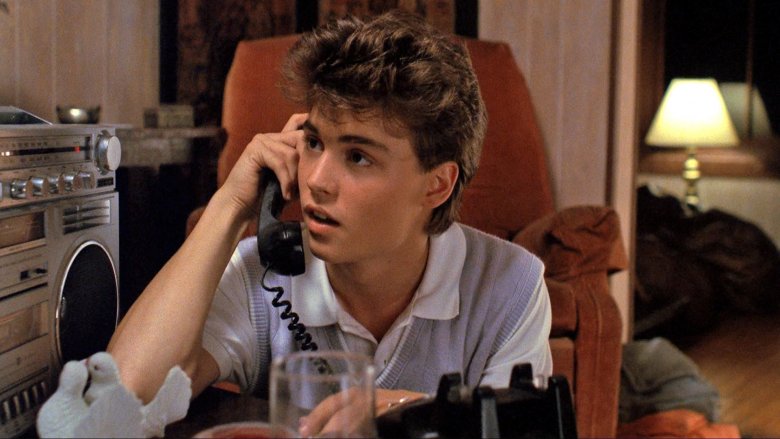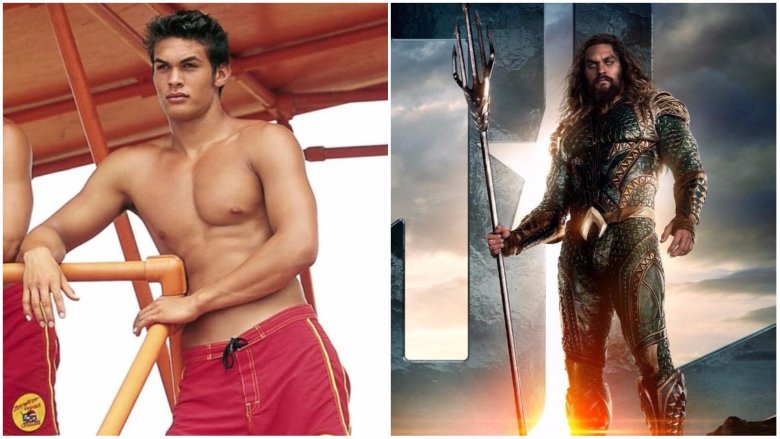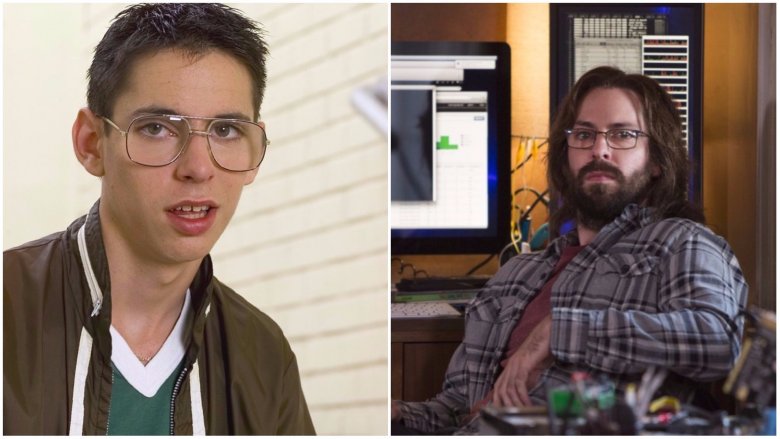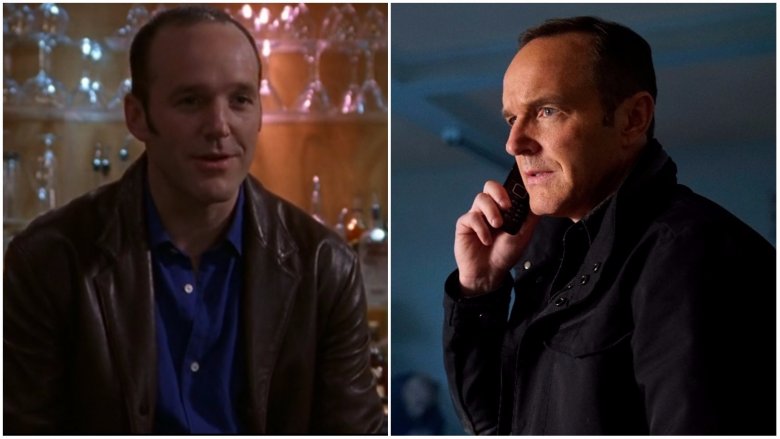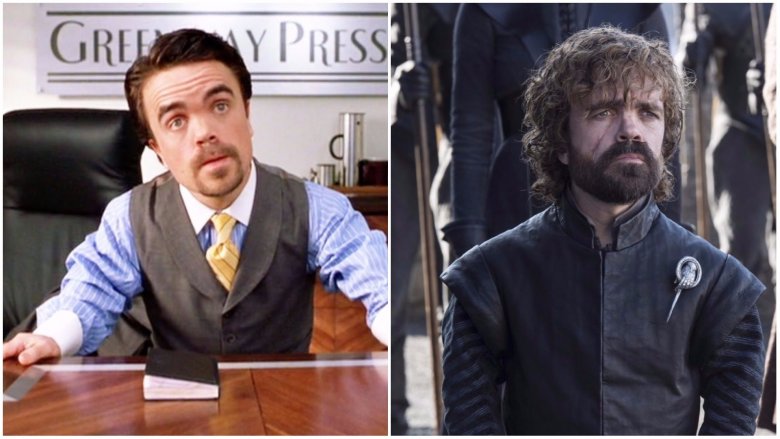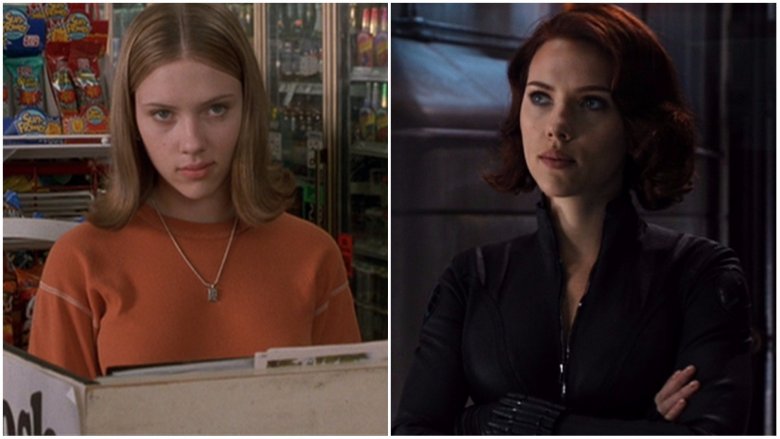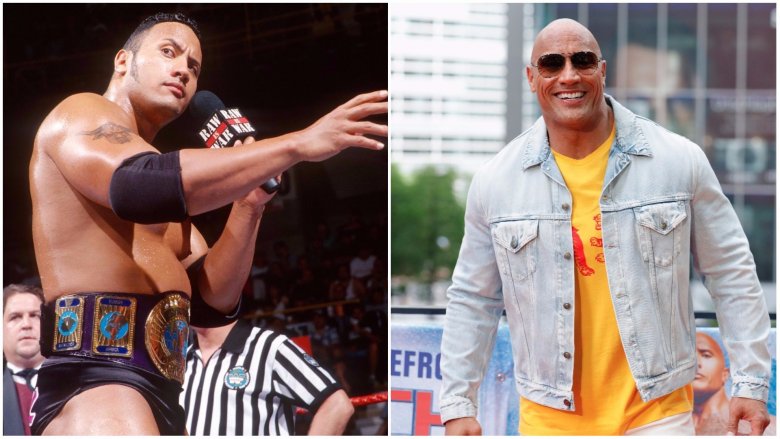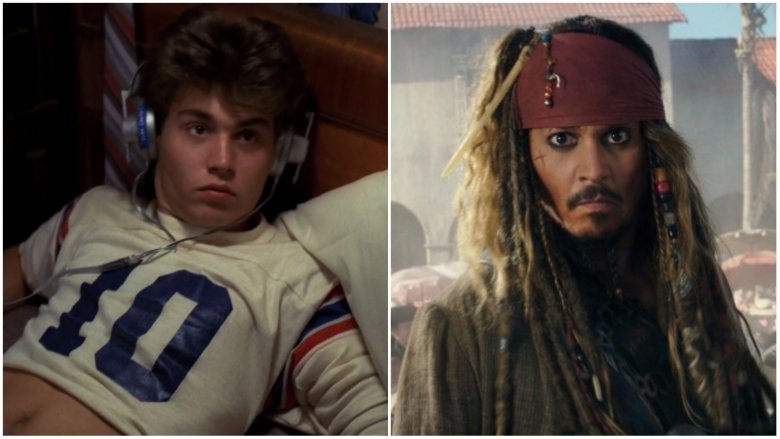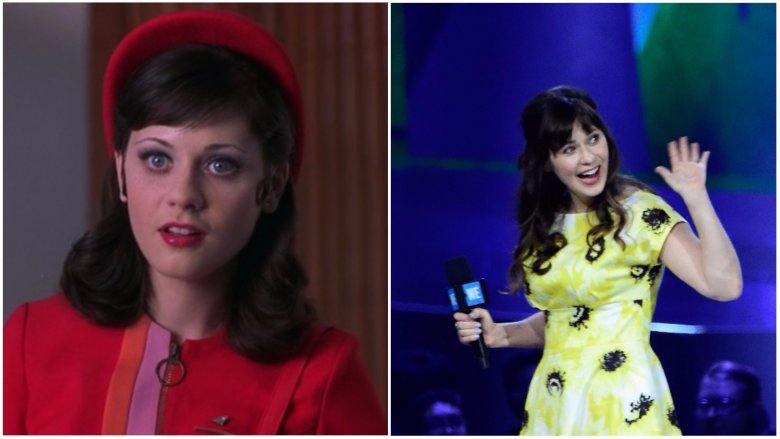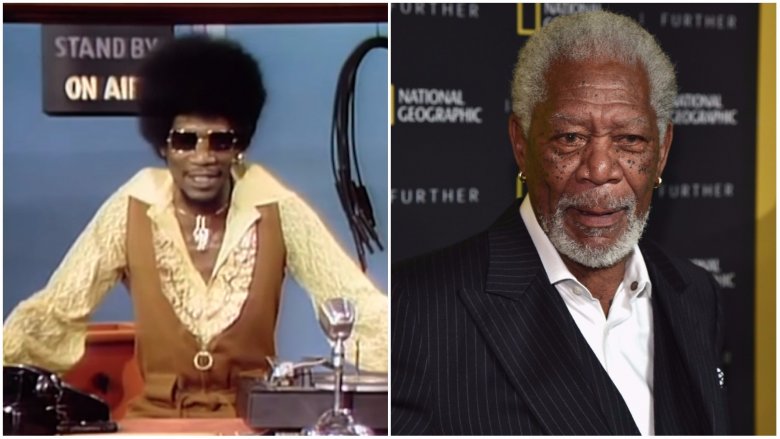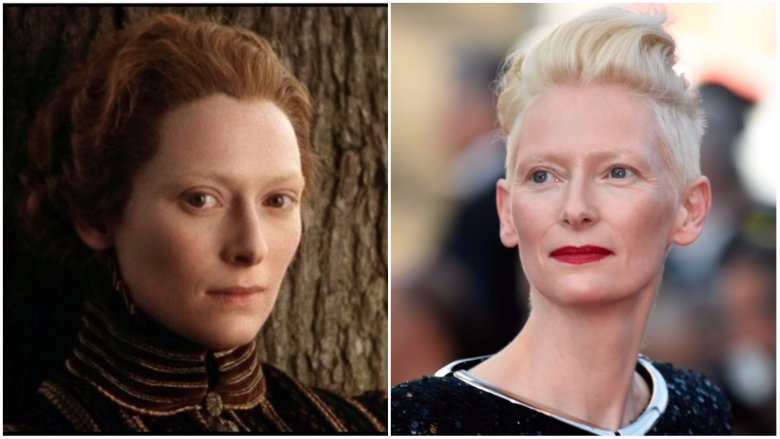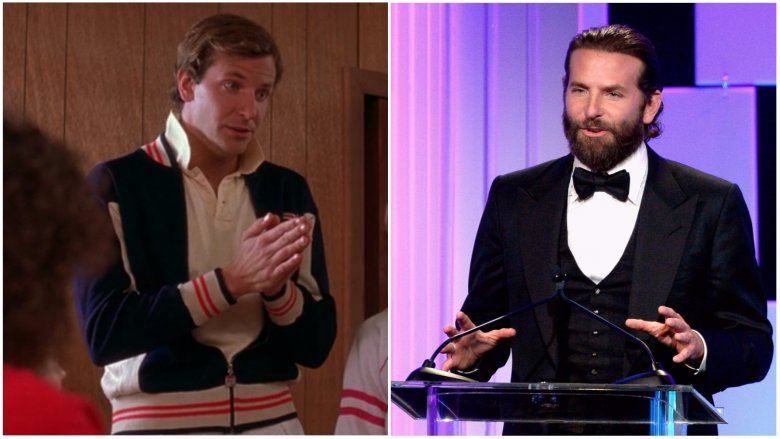Early Roles That Predicted Actors' Futures
Some movie and TV stars move through their careers with a strong personal brand that defines who they are no matter the role. Others are like chameleons, disappearing into their parts so effectively that you might not even recognize them. But what's really interesting is when you can look back at a star's early career and suddenly realize it's all made more sense than you knew. Here's a look back at a number of current stars whose early roles, in retrospect, foreshadowed what they've done since.
Jason Momoa on Baywatch Hawaii
Most people's memories of Jason Momoa only go back to his star-making turn as Khal Drogo, doomed Dothraki leader and husband of Daenerys Targaryen, in the first season of HBO's Game of Thrones. Despite being on the show for a relatively short amount of time, he made quite an impression as the handsome and charismatic warlord, and it undoubtedly led directly to his casting as Aquaman in the DC Extended Universe.
But what you might not know is that Momoa has been playing aquatic heroes since his career began—his very first onscreen role was as Jason Ioane in the last two seasons of Baywatch. He joined the cast when the show was relocated and revamped as Baywatch Hawaii, playing a young lifeguard who returns to Hawaii and rediscovers his Native Hawaiian heritage. Momoa was far more baby-faced and clean cut back then, lacking the long hair, beard, and tattoos that have since defined his look. But he already had the unmistakeable eyebrows and a more youthful version of the easy charm that has since made him a star.
So Justice League and the Aquaman solo movie that follows are a return to the water for Jason Momoa—and probably a return to saving lives as well, since lifeguards and superheroes have that in common.
Martin Starr on Freaks and Geeks
As Bill Haverchuck on Freaks and Geeks, Martin Starr was the geekiest geek, smart but socially awkward in the extreme. Tall and skinny with big glasses and strange mannerisms, he didn't fit in at school, except with his best friends Sam and Neal. While they awkwardly pursued girls, Bill didn't even seem to have reached that point yet, preferring his favorite TV shows to the high school social scene.
Starr was a teenager when he played Bill, and now he's in his 30s and starring on Silicon Valley. It's a progression that makes a lot of sense to anyone who's witnessed the maturation process of a true nerd. As Bertram Gilfoyle, Starr is as much a geek as Bill Haverchuck ever was, but in a more adult and perhaps less likable way. Gilfoyle is a computer programmer who's constantly sarcastic and full of himself. He's also a practicing LeVayan Satanist with a surprisingly attractive girlfriend. With his shaggy hair and beard, Starr looks nothing like that nice kid from Freaks and Geeks, but he's just as nerdy as ever.
Clark Gregg on Sports Night
In the penultimate episode of Aaron Sorkin's groundbreaking sitcom Sports Night, amid rumors of the show-within-a-show's cancellation, producer Dana Whitaker, played by Felicity Huffman, meets a mysterious stranger in a bar, played by Clark Gregg. She doesn't know him, but he seems to know everything about her and her show. For a moment, it seems like he might be God. In the end, he's just a man full of secrets and no small amount of power. A guest star in those last two episodes, Gregg seemed primed to become a series regular if the series had suddenly been picked up for a third season—but it wasn't, and his millionaire investor character was only able to offer an onscreen happy ending.
Eight years later, in Iron Man, Gregg would once again appear as a mysterious man with secrets. This time his name was Phil Coulson, and he'd go on to play that same character in multiple Marvel movies and become a star of the Agents of S.H.I.E.L.D. TV show. The Coulson character builds off that same charisma—that same ability to smile because he knows more than you while still somehow remaining likable—that made him a memorable presence in those final episodes of Sports Night.
Peter Dinklage in Elf
Miles Finch, the character portrayed by Peter Dinklage in 2003's Elf, is an angry man, and it's hard to blame him. Buddy, the Will Ferrell character, doesn't mean to be offensive, but he mistakes Finch for an elf because of his short stature. Finch just thinks he's being made fun of, which is a reasonable assumption since nobody besides Buddy even knows that real elves exist. And Finch, like Dinklage, has surely been made fun of for his height before.
Finch is a children's book author, not an actor, but Dinklage has similarly spent his career demanding respect from a world reluctant to give it to him. Standing at four feet, five inches tall, Dinklage has always refused to play the kind of clownish parts traditionally offered to little people. Even in those roles where humor is derived from his height, such as Elf and a memorable guest appearance on 30 Rock, the joke is always at the expense of those who would stereotype and think less of him.
It took Dinklage years to establish his unconventional career, but with the arrival of Game of Thrones in 2011, he finally found the vehicle that made him a megastar and an award-winning actor. As the brilliant, conniving Tyrion Lannister, Dinklage steals every scene he's in. And that's given him the star power to take parts that weren't written for someone of his height, like Bolivar Trask in X-Men: Days of Future Past.
Scarlett Johansson in Ghost World
Back in 2001, comic book movies weren't what they are today. There'd been a successful X-Men movie, and Spider-Man was on the way, but it was impossible to imagine that comics characters would ever be as ubiquitous on the big screen as they've since become.
Ghost World, which came out that year, was a comic book movie but not in the blockbuster sense. An indie film by Terry Zwigoff based on an indie comic by Daniel Clowes, it told the story of two teenage girls who don't know what to do with themselves after graduating high school. The film's main focus is on Thora Birch's Enid and her newfound friendship with an older man played by Steve Buscemi. Enid's high school best friend, Rebecca, has must less to do in the movie than she did in the comic, but it's that role that really launched a career: Rebecca was portrayed by a relatively unknown teenage actress named Scarlett Johansson.
After getting noticed in Ghost World, Johansson went on to star in Sofia Coppola's Lost in Translation a couple of years later, which in turn led to more and bigger roles; ultimately, she returned to comic book movies to find her greatest success as Natasha Romanov, the Black Widow, in Iron Man 2, The Avengers, and other Marvel movies. While her career is obviously far from over, there's a real sense of things coming full circle: a small comic book movie launched her career, and when huge comic book movies took over Hollywood, she was a big part of it.
Dwayne "the Rock" Johnson in WWE
The Rock, one of WWE's all-time biggest wrestling stars, wasn't always a nice guy. In fact, he usually wasn't. He was cocky, self-obsessed, and liked to put his opponents down. Nevertheless, audiences loved him. He started getting cheers despite being a part of the Nation of Domination, a reductive parody of black nationalist groups that was a bad guy faction in WWE at the time.
The thing about the Rock was his charisma. It didn't matter if he was a bad guy, or who he was putting down on the mic—he was just so lovable. It had more to do with his smile, his unique style of speaking, and his trademark cocked eyebrow than his work in the ring.
And basically, that's turned out to be Dwayne "the Rock" Johnson's entire career. After transitioning from wrestling to movies far more successfully than the many wrestlers who tried before him, he's continued to be widely beloved more for his unique charisma than his talents—although he's a perfectly serviceable actor for comedies and action movies. Now he's even talking about running for President, although that's probably a joke. Still, it's hard to doubt that if he ran, he could stand a shot at winning. Ever since he emerged as the handsome face of professional wrestling 20 years ago, his popularity has only grown.
Johnny Depp in A Nightmare on Elm Street
Glen Lantz, the boyfriend of famous final girl Nancy Thompson in Wes Craven's Nightmare on Elm Street, fulfills the role of male lead in a slasher, but he never quite fits the archetype. He's presented to viewers as if he's a handsome jock, and he certainly is handsome, but he seems more like a theatre kid than a jock. He's a little too pale, a little too gentle, and just a little too weird—the perfect big-screen debut for future megastar and all-around weirdo Johnny Depp.
Depp was never interested in being a typical teen idol. Despite his looks, he went on to choose off-kilter roles in weird projects like John Waters' Cry-Baby and Tim Burton's Edward Scissorhands. His collaborations with the latter director, in fact, would go on to define much of his career. Three things have held true over the more than 30 years of Depp's career: he makes a lot of supernatural genre movies (The Ninth Gate, From Hell, Pirates of the Caribbean), he chooses a lot of quirky roles (Tonto, the Mad Hatter, Mortdecai), and he works with a lot of idiosyncratic directors (Waters, Burton, Michael Mann, Rob Marshall). All three of those trends started with his collaboration with Wes Craven on Nightmare.
Zooey Deschanel in Almost Famous
The action of 2000's Almost Famous is set off by the main character's older sister leaving home. She explains she's long felt stifled by their overprotective mother and wants to lead a more artistic life and—inspired by Simon and Garfunkel—search for America. That older sister, you may remember, was a not-quite-famous-yet Zooey Deschanel in one of her first roles.
For the next decade, Deschanel seemed very much like that young woman who'd run away to be an artist. She played a succession of manic pixie dream girls in films, and became a successful musician in collaboration with M. Ward. She maintained an image of being a little fruitier and a little more bohemian than the average Hollywood ingénue. And when she did settle down, to star in New Girl on Fox, she played a character reflected heavily by her own twee image. Presumably by now Zooey has found America, but she's never quite stopped seeming like your older sister the hippie.
Morgan Freeman on The Electric Company
Everyone trusts Morgan Freeman. There have been memes on the internet for years just about the unique authority of his distinctive voice. Maybe it started early this century, when he played God in Bruce Almighty and narrated the breakthrough documentary March of the Penguins. Or maybe it was a decade before that, when he played a wise cop in Seven and a wise criminal in The Shawshank Redemption.
But Freeman was a knowing authority figure long before that. In the 1970s, he was one of the stars of The Electric Company, an educational PBS TV show aimed at slightly older kids than Sesame Street. As recurring characters like Easy Reader and DJ Mel Mounds, Freeman made spelling and phonics seem surprisingly cool. It's true that most of the kids making memes about his voice today are too young to remember The Electric Company, but it's still worth noting that the most trustworthy grandfather in the acting field got his start educating children. Even back then, he was someone worth listening to.
Tilda Swinton in Orlando
1992's Orlando is a strange movie, based on an equally unusual novel by Virginia Woolf. It's about a nobleman who becomes immortal after a blessing from Queen Elizabeth, and later spontaneously transforms from male to female after becoming fed up with the male sex. The title character is portrayed—both as a man and as a woman—by Tilda Swinton.
Orlando was Swinton's breakout role, and ever since, her career has been defined by sexual ambiguity. She played the perfectly androgynous archangel Gabriel in Constantine. She was also the White Witch, literally a female incarnation of Satan, in The Chronicles of Narnia. She teamed up with David Bowie toward the end of his life for a music video and a series of photographs where they played off their mutual androgyny.
In 1992 when Orlando had come out, nobody had heard of Tilda Swinton. But if you described the role now, just about anyone would say, "That sounds like a Tilda Swinton part."
Bradley Cooper in Wet Hot American Summer
Wet Hot American Summer is an exceptionally silly movie, but like a lot of comedies it's full of characters who take themselves way too seriously—like Ben, played by Bradley Cooper. Ben is a camp counselor and a bona fide theatre kid directing a musical number for the summer camp talent show, and he's extremely no-nonsense about it. He even tells a group of literal children that if they know they're not talented, "don't come into the audition environment and waste our time."
Although he was much older than his character, like all the adults who played teenagers in Wet Hot American Summer, Cooper was a total unknown when he made that movie. Nobody could expect then that he'd go to be a star—not just of comedies, but acclaimed dramas. Cooper was nominated for three Academy Awards in three consecutive years, for Silver Linings Playbook, American Hustle, and American Sniper. It's a future that young Ben, the very serious theatre enthusiast, would be incredibly proud of.
